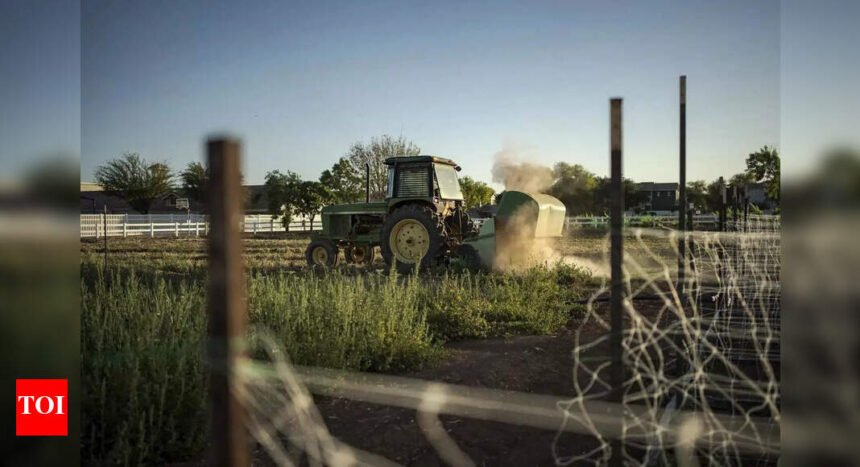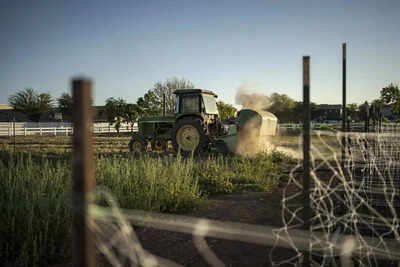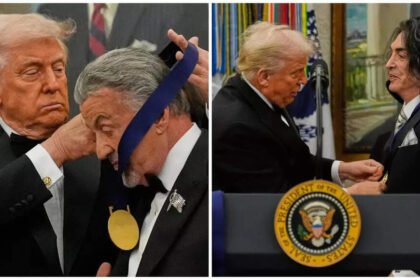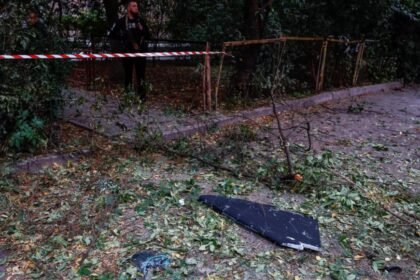Amid the intense focus on the European Union’s efforts to reduce imports of Russian gas and oil over the past few years, a significant product has slipped under the radar: fertilizer.Russia is a major global producer and exporter of fertilizer, which is used by farmers and food producers to provide nutrients to plants and crops.While the EU has largely cut out Russian oil and gas from its import list, it has ramped up its purchases of the country’s fertilizer since Russia invaded Ukraine in February 2022.Russia’s share of EU fertilizer imports has grown from 17% in 2022 to about 30% now. In 2024 alone, imports rose by more than 33% to around $2 billion (€1.75 billion).According to the MIT Observatory of Economic Complexity — a detailed trade data platform — Russia exported a total $15.3 billion worth of fertilizers in 2023, making it the largest exporter in the world.While its primary export markets are India and Brazil, the EU collectively accounts for a significant chunk of Russia’s exports, weighing in at around 13% in 2023.Earlier this month, however, the European Parliament endorsed the European Commission’s proposal to introduce a 6.5% tariff on fertilizers imported from Russia and Belarus. The plan is to continue ramping up the tariffs to 50% by 2028.
Why does the EU buy so much Russian fertilizer?
This can be partly explained by the type of fertilizer Russia produces and how it produces it. Russia specializes in nitrogen-based or inorganic fertilizer, which requires huge amounts of natural gas both as a raw material and to produce it.Many EU nations require nitrogen-based fertilizers because they are particularly rich in nitrogen and vital nutrients such as phosphorus and potassium.William Moseley, professor of geography at Macalester College in the USA and a member of the UN High-Level Panel of Experts for Food Security and Nutrition, told DW that Russia is particularly well-placed to meet this demand because it can use cheap gas to produce the fertilizer for far lower prices than European competitors can.The European fertilizer sector has railed against what some have said is Russia “dumping” cheap fertilizer into the EU market.When European energy prices surged and energy markets were disrupted by the invasion of Ukraine, many European producers of nitrogen-based fertilizers were forced to stop production. Now they have lost market share to Russia and are struggling to compete.
What are the EU’s alternatives?
According to Moseley, the EU’s tariff plans suggest it is serious about weaning itself off Russian fertilizer by 2028.“This will force EU countries to source inorganic fertilizer from elsewhere,” he told DW, identifying China, Oman, Morocco, Canada or the US as potential alternative markets.Mosley believes other alternatives for the EU would be to turn to its own sources of nitrogen-based fertilizer — which would be very expensive, due to the gas requirements — or to ramp up the use of organic fertilizer made from manure and composted organic waste.This option, he added, was “more sustainable and better for the soil.”“While it is unlikely that the EU could become totally independent of inorganic fertilizer imports, it could certainly shift the ratio towards more dependence on home-grown organic fertilizer production, especially if it is done gradually,” said Mosley.The EU itself has acknowledged that it wants to move in this direction of developing fertilizer processed from animal dung and urine.Christophe Hansen, European Commissioner for Agriculture and Food, said in February that the livestock sector could “provide a positive input to the circular economy” with organic fertilizer, as it is “domestically grown and doesn’t need to come from outside and is not based on high energy prices like gas.”
How will the EU plan work?
Moseley thinks the EU fertilizer tariffs, if carried out as planned by 2028, will gradually eliminate Russian imports from the EU market. “By 2028, the duties will be so high that it will be economically unviable for the EU to import inorganic fertilizer from Russia and Belarus.”The EU’s sanctions will come into effect in July and specifically target agricultural products which it had neglected previously, including fertilizers.In a statement, the EU Commission said particularly fertilizer imports “make the EU vulnerable to potential coercive actions by Russia and thus present a risk to EU food security.”The reason why the sanctions are to be phased in gradually over the next three years is to give EU farmers time to find alternatives, particularly if they are already dependent on Russian fertilizers.
Are farmers and fertilizer producers happy?
In a statement on the EU tariff plan, the president of the Fertilizers Europe industry group, Leo Alders, said surging imports of Russian fertilizers into Europe have been “undermining fair competition and putting pressure on domestic producers” for too long.Although calling for higher tariffs to be brought in more quickly, Alders wrote that “by levelling the playing field, tariffs will contribute to ensuring that European producers can continue supplying European farmers with high-quality, sustainable fertilizers for years to come.”However, farmers’ groups are not happy because they feel the EU has not done enough to develop realistic, affordable alternatives to Russian fertilizer.Copa and Cocega, the two major agricultural umbrella organisations in the EU, released a joint statement urging the EU to present a clear strategy on diversification of fertilizer supply.If the EU is determined to reduce dependency on Russian and Belarusian fertilizers, they said, it must present a “credible and forward-looking” alternative. “We cannot afford to further undermine the economic viability of farms or the food security of millions across the EU,” the statement underlined.






